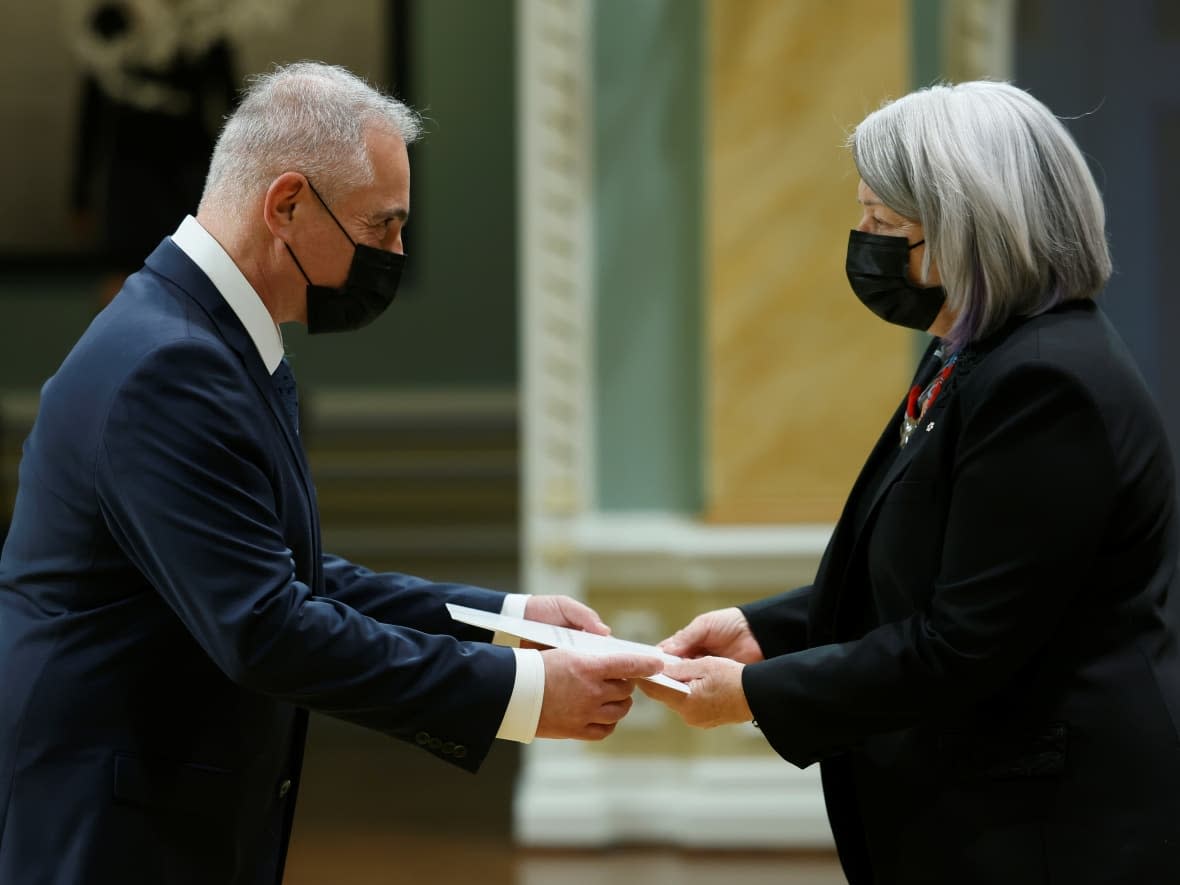Israel's ambassador to Canada says he will resign, citing differences with new Netanyahu government

Israel's ambassador to Canada says he intends to leave his post in Ottawa because of political disagreements with the new Israeli government led by Benjamin Netanyahu.
Ronen Hoffman, who has served just over a year as Israel's envoy to Canada, announced in a tweet on Saturday he hoped to be recalled early by the Israeli government, with a target of wrapping up his tenure later this year.
"With the transition to the new government and to different policy in Israel, my personal and professional integrity has compelled me to request to shorten my post and return to Israel this summer," Hoffman wrote.
Hoffman is a former member of the Israeli legislature — the Knesset — and part of the centrist Yesh Atid party, which is led by former Israeli prime minister Yair Lapid. A coalition of parties headed by Lapid lost out in last year's November election to a bloc of right-wing parties led by Benjamin Netanyahu, and Netanyahu became Israel's prime minister once more in late December.
Netanyahu has formed what some observers have called Israel's most right-wing government ever.
Hoffman's announcement comes just weeks after the resignation of another official in a major diplomatic post. Yael German, Israel's representative in France, also quit in late December, noting the new government included members with "extreme" views and that Netanyahu was pushing policies that would result in "unacceptable" legislation.
German, who was also appointed by Lapid, said the new changes would endanger "the character and values of the State of Israel."
A particular source of controversy in recent weeks has been the Likud-led government's plan to pass a series of measures that would weaken the judiciary in relation to the government. Netanyahu has said the country suffers from a power imbalance, with judges being too powerful.
But critics say Netanyahu, who himself faces a trial on corruption charges, is hoping to use the measure to escape his own legal jeopardy, and weaken constitutional rights.
"Even though we talk about constitutional law, [Israel has only] essentially two basic laws that are a kind of stand-in for a bill of rights," Dahlia Scheindlin, a political analyst in Israel and fellow at the Century International think tank, told CBC News.
"Israelis are very worried that the only real protections they have for human rights, for civil rights, for minority rights, for the kinds of rights that have been progressing over the years to some extent, actually to a large extent I would say based on judicial review and court decisions," Scheindlin said.

Tens of thousands of protesters took to the streets in Tel-Aviv on Saturday to protest the plans. Other protests took place in the cities of Jerusalem, Haifa and Beersheba.
Israel has been wracked by a political crisis for years, holding five different elections since 2019.
Hoffman declined a request for an interview with CBC News.


